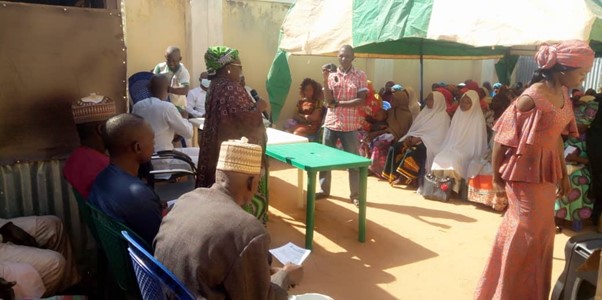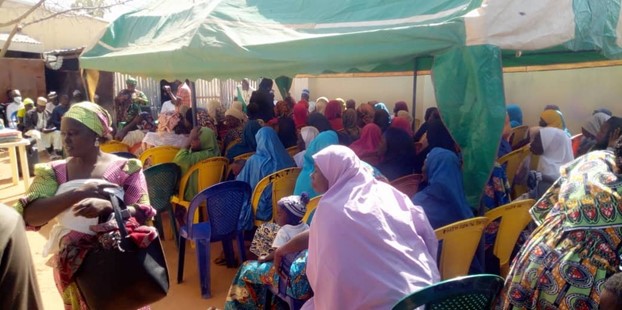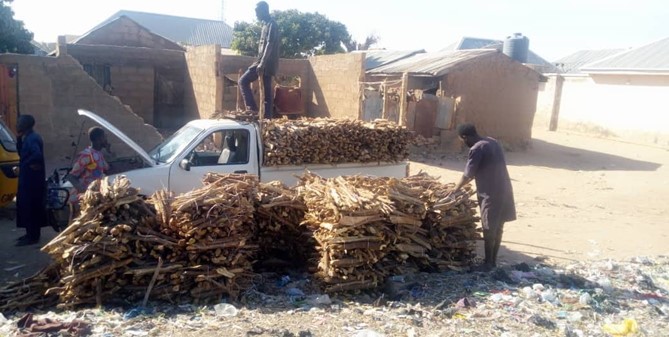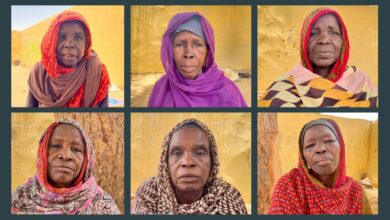Traumatised Insurgency Victims In Northeast Nigeria Gradually Getting Help

Asides the loss of loved ones and properties that come with violent conflicts, there is also an undeniable mental toll it takes on the survivors.
Because of its sheer scale, addressing the problem has been daunting in Nigeria’s northeast region, which has experienced a decade-long insurgency. But one non-governmental organisation has taken up the challenge.
Through its project in Gombe, which borders Adamawa, Borno, and Yobe–the three states most ravaged by the Boko Haram crisis–the Kishimi Shelter and Care Foundation is providing psycho-social care and trauma healing to internally displaced persons (IDPs) fleeing the conflict in the northeast.
This project, supported by the African Transitional Justice Legacy Fund (ATJLF), targets vulnerable people including women, the elderly, children, and persons with disabilities, providing them with customised psycho-social services.
“In addition to amplifying the agency of survivors, the project will train at least 300 IDPs as trauma counsellors who will deliver first aid psycho-social care services in the camps, prior to referring them for professional counselling and support,” the organisation states.
The NGO is not new to the realities of the region since it was founded in 2008, about the same time the insurgency started. Based on its experience, it was announced by the ATJLF, in February 2020, as one of the first non-profits to receive funding across six countries in Africa.
“The selected projects reflect the aspirations of the ATJLF. They are intended to individually and collectively support locally relevant and contextually driven transitional justice initiatives in the six countries,” noted Makmid Kamara, ATJLF Director.
“Through these projects, we are ushering in a process that will ultimately reactivate survivor agency, while contributing to rebuilding communities affected by conflicts and dictatorships in the continent, starting with West Africa.”
The ATJLF is a public charity based in Ghana that supports organisations in rebuilding communities affected by conflict and aiding transitional justice processes such as accountability, truth-seeking, and reconciliation. It is currently providing about $1.5 million in funding to 42 organisations from seven West African countries.

Soon after the Legacy Fund’s announcement in February, the Kishimi Foundation started engaging with community members in Gombe and conducting advocacy visits to stakeholders, including four traditional rulers and government officials.
This took place in Gombe and Akko Local Government Areas. The government MDAs visited were the State Emergency Management Agency (SEMA), Gombe Specialist Hospital, and the Ministries of Justice and Women Affairs.
It trained selected stakeholders, in May, on how to identify and respond to traumatised, displaced victims of violence.
These included government representatives, faith leaders, women leaders, youth leaders, media practitioners, and representatives of persons with disability.
It then constituted a Technical Working Group from among the stakeholders to oversee the implementation of the project and provide technical support. There is similarly a steering committee responsible for the regulation of the activities of trauma victims and survivors of distress in the various communities.
In its interaction with beneficiaries, the organisation provided opportunities for skill acquisition and financial literacy, and plans to give seed grants to some of them while others become part of Village Savings and Loans Associations.
Some of the skills the Kishimi Shelter and Care Foundation is helping IDPs to acquire include groundnut oil extraction, tailoring, cosmetology, petty trading of firewood, and so on.

It also provided medical support for IDPs “whose traumatic conditions have degenerated to psychiatric situations”, collaborating with the State Specialist Hospital and employing the service of consultants who specialise in trauma healing.
“Although the Gombe State Government placed a ban on every form of social gathering because of COVID-19 pandemic, one-on-one meetings were allowed so long it was in line with the social distancing rule and safety protocols. The restriction only affected the workshop which was shifted to a later date when the law became more relaxed,” the Foundation says.
As of April, it had far enrolled 150 IDPs from Arawa/Kundulum, Pantami, Shamaki, Tabara, Bomala, Hammadukafi, Bogo, Tunfure, Wuroshie–all districts in the two Local Government Areas. And, by November, the organisation had reached over 300 displaced people, many from the neighbouring states of Adamawa, Borno, and Yobe.
Last November, President Muhammadu Buhari launched a badly needed trauma centre at the University of Maiduguri Teaching Hospital, Borno State.
“The 150-bed trauma centre which is commissioned here in Maiduguri will really meet the challenges of the growing needs of healthcare delivery in the northeast. All these unprecedented landmark projects will go a long way in addressing the healthcare need of the region,” Buhari said.
According to the hospital’s Chief Medical Director, Prof Ahmed Ahidjo, the centre is equipped with a Neuro-Trauma Operating Theatre, Orthopedic Theatre, Vascular and General Surgical Units, Intensive Care Unit, Pharmacy, and a helipad for an emergency landing.
But, till the Trauma Centre rolls fully into action, non-profit organisations such as the Kishimi Shelter and Care Foundation will continue to do their bit in providing care for the millions of displaced and distressed people in the northeast.
Support Our Journalism
There are millions of ordinary people affected by conflict in Africa whose stories are missing in the mainstream media. HumAngle is determined to tell those challenging and under-reported stories, hoping that the people impacted by these conflicts will find the safety and security they deserve.
To ensure that we continue to provide public service coverage, we have a small favour to ask you. We want you to be part of our journalistic endeavour by contributing a token to us.
Your donation will further promote a robust, free, and independent media.
Donate Here




